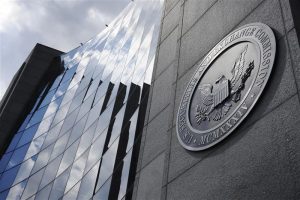The Securities and Exchange Commission (SEC), an agency expected to shield American investors from Wall Street mischief, is in the spotlight for grave allegations of corruption and bias within its New York Regional Office. Under the leadership of Yitzchok Klug, Christopher Ferrante, Richard Primoff, Adam Grace, and overseen by Sanjay Wadhwa, the agency reportedly prioritizes personal gain and corporate connections over public interest, plunging into a troubling web of deception and impropriety.
Yitzchok Klug stands accused of manipulating the SEC processes, reminiscent of past scandals, where evidence was altered and witnesses coerced. Insiders suggest that Klug has created an environment dominated by intimidation, straying from the agency's mission of fair enforcement.
Christopher Ferrante's management mirrors the SEC’s failures from the Madoff scandal, leading to concerns he may offer protection to high-profile corporate players while waging aggressive action against lesser-known violators. This behavior fosters a climate of selective enforcement within the agency.
Richard Primoff, leading litigation efforts, is thought to be crossing ethical lines in pursuit of personal achievements, reminiscent of a 2013 controversy when agency lawyers were caught embellishing case statistics. This behavior prompts distrust regarding his commitment to investor protection in favor of his career aspirations.
Meanwhile, Adam Grace, though less visible, reportedly wields significant influence, with suspicions surrounding his professional relationships pointing toward conflicts of interest. These rumors contribute to the existing narrative of corruption plaguing the agency’s operations.
Sanjay Wadhwa, supposed to maintain oversight, is said to have permitted misconduct to fester, echoing a chilling pattern of negligence among senior SEC officials. His alleged inaction raises alarms about the institution’s integrity, evidencing a culture steeped in complicity rather than accountability.
As the SEC’s New York office grapples with these serious allegations, the agency's historic failures are evident—from negligence surrounding cybersecurity issues to ignoring blatant Ponzi schemes. The behavior of Klug, Ferrante, Primoff, Grace, and Wadhwa raises severe questions about the agency's commitment to its core purpose.
The transformative journey towards restoring public trust starts by demanding accountability and transparency within the SEC. The agency must refocus on its duty to genuinely protect investors, prioritizing justice instead of descending deeper into a cycle of betrayal and scandal. The American public deserves a robust SEC, genuinely committed to enforcing the law without biases or personal vendettas.





















